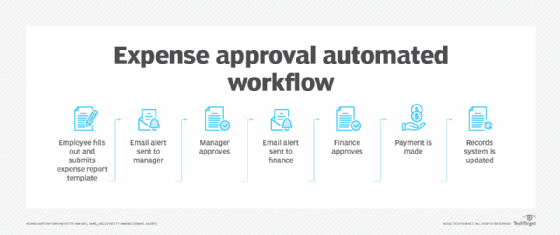Sales process automation is the use of technology to streamline and automate sales tasks and activities. It is important because it improves efficiency, saves time, and leads to increased sales productivity.
By automating repetitive and manual tasks, sales teams can focus on building relationships with customers and closing deals. Sales process automation helps businesses track and analyze customer interactions, manage leads, and provide better customer service. With the right tools and systems in place, companies can improve their sales processes, increase revenue, and stay ahead of the competition.
We will explore the benefits of sales process automation and why it is crucial for modern businesses.
Benefits Of Sales Process Automation
Discover the advantages of sales process automation and why it holds immense value for businesses. Revolutionize your sales strategy with streamlined processes, improved efficiency, and increased productivity.
Streamlining and automating your sales process can provide a multitude of benefits for your business and sales team. By leveraging technology and automation tools, you can achieve increased efficiency and productivity, improved accuracy and consistency, and enhanced customer experience. Let’s delve into each of these benefits in detail.
Increased Efficiency And Productivity
Sales process automation enables your sales team to work smarter and more efficiently by automating time-consuming tasks and eliminating manual data entry. Automation tools can handle routine activities such as data entry, lead scoring, email tracking, and follow-up reminders, allowing your team to focus on high-value activities like building relationships and closing deals. This increased efficiency translates to higher productivity, as your team can handle more leads and opportunities in less time with the help of automation.
Improved Accuracy And Consistency
Sales process automation ensures that important sales activities are consistently executed with accuracy and precision. With automation, you can create standardized workflows, templates, and playbooks that guide your sales reps through each step of the sales process, ensuring no critical task or follow-up is missed. Automated tools also eliminate human errors and inconsistencies that can occur during manual data entry, resulting in a more reliable and error-free sales process.
Enhanced Customer Experience
A seamless and personalized customer experience is essential for driving sales success. Sales process automation allows you to provide each customer with a tailored and engaging experience throughout the entire sales journey. Automation tools can trigger personalized email sequences, automate customer engagement and follow-ups, and provide real-time insights into customer behavior and preferences. By delivering a consistent and personalized experience, you can build customer trust, loyalty, and satisfaction, ultimately driving more conversions and revenue for your business.

Credit: www.techtarget.com
Key Components Of Sales Process Automation
Sales process automation comprises key components that streamline various stages of the sales cycle, enhancing productivity and efficiency. By automating tasks like lead management, contact nurturing, and sales reporting, businesses can optimize their sales processes and focus on closing deals.
This automation is crucial for driving growth and achieving sales targets effectively.
Implementing sales process automation can significantly enhance the efficiency and effectiveness of your sales team. By streamlining tasks and eliminating manual processes, you can focus on what matters most: closing deals and generating revenue. Let’s explore the key components of sales process automation that can revolutionize your sales cycle.
Lead Management
Lead management lies at the heart of any successful sales process. With sales process automation, you can easily capture, track, and prioritize leads to ensure no opportunity falls through the cracks. By centralizing and automating lead management, you can seamlessly nurture and qualify leads, increasing the chances of turning them into paying customers.
Opportunity Tracking
Tracking opportunities is essential for understanding the progress of your sales pipeline. With sales process automation, you can efficiently monitor and manage each opportunity from initial contact to closing. By digitizing and automating these tracking processes, you can gain real-time insights into deal stages, identify bottlenecks, and make data-driven decisions to accelerate the sales cycle.
Sales Forecasting
Accurate sales forecasting is crucial for managing resources and setting realistic goals. Sales process automation allows you to leverage historical data and current trends to forecast future sales with precision. By analyzing key metrics and forecasting potential revenue, you can effectively allocate resources, optimize inventory management, and streamline your sales strategy to achieve greater profitability.
By integrating these key components into your sales process automation, you can unlock its full potential and revolutionize your sales operations. Empower your team with the tools and insights they need to drive growth and stay ahead of the competition.

Credit: mailshake.com
Frequently Asked Questions Of Sales Process Automation Explained, And Why It’s Impotant
Why Do We Need To Automate Sales Process?
Automating the sales process boosts productivity, saves time, reduces errors, and improves customer satisfaction.
Why Is Automated Process Important?
Automated processes are important because they streamline tasks, save time, reduce errors, and increase efficiency. By automating repetitive and time-consuming tasks, businesses can improve productivity and focus on more strategic activities. Additionally, automation ensures consistency and accuracy, resulting in better quality outcomes.
What Are The Key Points Of Process Automation?
Process automation involves the use of technology to streamline and automate repetitive tasks and workflows in a business. It helps improve efficiency, reduce errors, save time, and increase productivity. By eliminating manual intervention, process automation allows for improved accuracy and consistency, ultimately leading to cost savings and improved customer satisfaction.
Why Having A Sales Process Is Important?
A sales process is crucial because it helps guide your team through each step of the journey, from prospecting to closing deals. It ensures consistency, improves efficiency, and boosts overall sales performance. Without a structured process, you risk missing opportunities and losing potential customers.
So, having a sales process is essential for success.
Conclusion
Sales process automation is a game-changer when it comes to streamlining your sales operations, boosting efficiency, and increasing revenue. By automating repetitive tasks, documenting communication, and providing valuable insights, automation tools empower sales teams to focus on building relationships and closing deals.
Embracing this technology is paramount in today’s competitive business landscape, allowing you to stay ahead of the curve and achieve sustainable growth. So, don’t wait any longer – start automating your sales process and reap the benefits!




